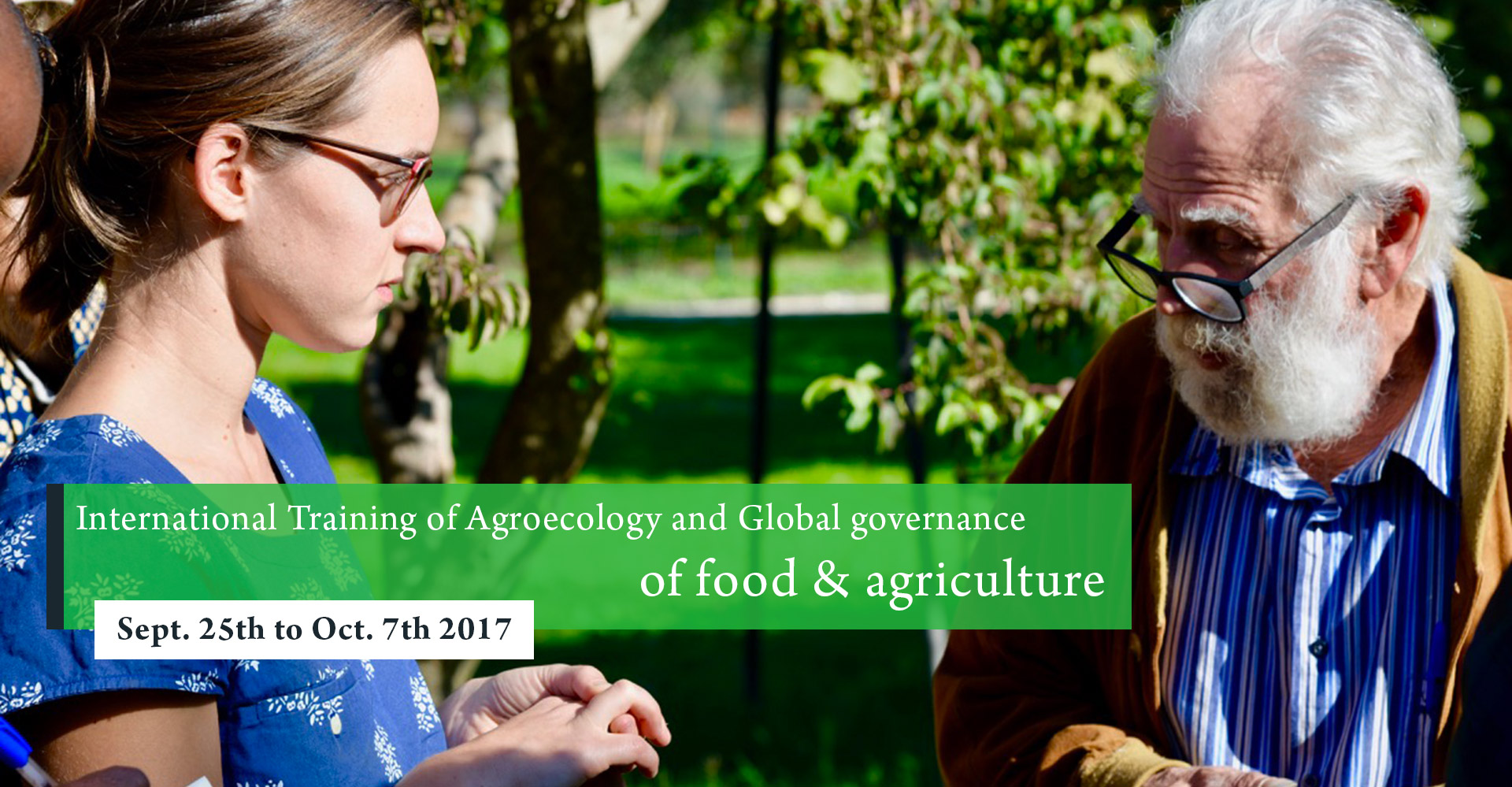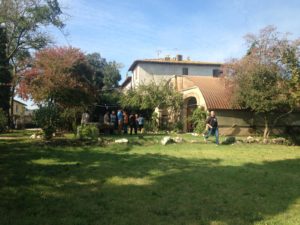Agroecology and Global Governance Youth Training (July 2019)
Schola Campesina -with the financial support of FAO-, is organizing a capacity-development training for 10 young members from small-scale food producers partner organizations on global governance mechanisms of food and agriculture in the frame of the United Nations Decade of Family Farming (2019-2028).
The training is being held in a partner farm, in the Lazio Region, Italy from 28th of June until 5th of July 2019. The participants, coming from all over the world and from a variety of constituencies, are sharing experiences and discuss issues related to global food and agriculture governance mechanisms, family farming knowledge and autonomy, agroecological practices and resilience, sustainable food policies, women empowerment, etc.
The participants are taking part to the launch of the HLPE (High Level Panel of Experts on Food Security and Nutrition) report on Agroecological approaches and other innovations for sustainable agriculture and food systems that enhance food security and nutrition. They are meeting with Meeting with FAO on the United Nations Decade on Family Farming and the FAO Agroecology Unit.
All videos of the training are available here:
Schola Campesina hosted an advocacy training for CSA’s groups (Urgenci)
Schola Campesina is facilitating a European workshop on global governance mechanisms of food and agriculture directed to Community Supported Agriculture groups in the frame of an Erasmus+ project on advocacy capacities coordinated by Urgenci (10-14 Oct. 2018, Italy).
Cities around the world are starting to pay attention on food issues from different entry point: obesity issues, contaminations, food insecurity, water scarcity, poverty, etc. The Milan Urban Food Policy Pact (2015) provides a network to encourage the dissemination of best practices amongst the cities local governments.
What is missing here?
A part from interesting initiative in Latin America, the challenges faced by rural food producers -particularly the lack of markets- are not often considered as a priority for the cities local governments.
This is why -in this context of increasing visibility of food issues in urban agendas- CSA’s groups are crucial, not only in their actions of providing fair markets; but also in advocating for farmers-orientated policies.

Formation internationale sur l’Agroécologie et la gouvernance mondiale de l’agriculture et de l’alimentation
La première fromation de Schola Campesina a eu lieu en 2017 au sein d’une ferme Schola dans le Biodistrict de la Via Amerina e delle Forre (province de Viterbo).
La formation a rassemblé des membres d’organisations paysannes du monde entier afin de susciter le partage d’expériences et de discuter de questions telles que la gouvernance mondiale de l’alimentation et de l’agriculture, le savoir paysan, l’autonomie paysanne, les pratiques agroécologiques, les luttes paysannes de part le monde, les politiques alimentaires, l’empowerment des femmes en agriculture etc.
Les deux semaines de formation se sont déroulées pour une part à Rome où se trouvent tous les sièges desagences des NU liées à l’agriculture et à l’alimentation. Cette centralité a permis aux participants de bénéficier de savoirs paysans et activistes du monde entier. La plus grande partie de la formation s’est déroulée dans la campagne avoisinante une ferme membre de Schola Campesina (Biobagnolese).
16 participants internationaux, essentiellement des petits agriculteurs des pays du Sud mais aussi des membres d’institutions académiques ont pu échanger dans un esprit d’apprentissage horizontale, entre paires et entre différents types de savoirs (« Dialogo de Saberes »).



